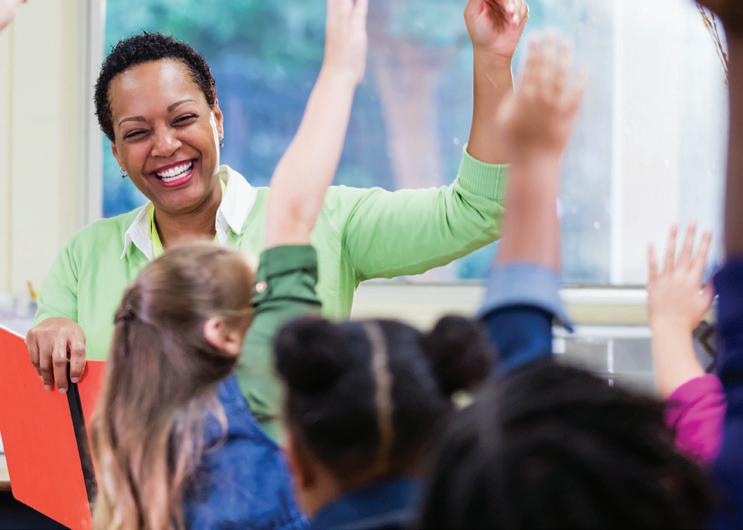
2 minute read
Testing Tips for Student Success
TIPS FOR EDUCATORS FROM AEA BOARD MEMBER MELISSA MOORE
Bubble sheets and Scantron machines may be a thing of the past, but educators still use tips and tricks that will propel their students to the levels of proficiency and beyond. While some of the guidance on standardized test preparation has changed, the best tips never have.
Advertisement
HIT THE HAY
The old advice of getting a good night’s sleep and eating a good breakfast before the test, of course, still stands. Any educator knows that a student will perform their best when they are both refreshed and fueled. It is not enough to only consider a student’s physical body. Teachers must also take their mental states into account.
PROJECT POSITIVITY
It is vital to cultivate a positive mental attitude about the standardized test on the horizon. Educators must treat the test as an exciting, fun opportunity, not a scary experience. Students will mirror your feelings on this issue, so be encouraging. It costs nothing for an educator to tell their students, “I heard this year’s test is going to be the easiest one yet.” Whether this is legitimately true or not, that is beside the point. Students need to feel they have a chance and there is hope for their achievement.


CREATIVITY IS KEY...
During the academic year, educators can benefit their students by utilizing critical thinking skills. Depth of Knowledge Questions (DOK) and Higher Order Thinking questions (HOTs) allow students the skills to analyze their answer choices and, in turn, use their process of elimination.
... BUT TEST TAKING SKILLS HELP
These skills, along with the use of released test items, will increase our student’s chance of success. Teachers who utilize released test items in class have reported increased confidence and less test anxiety among their students when they are familiar with the test format in advance. While “teaching to the test” is often seen as the worst type of education, test-takers will benefit from this mindset in the long run. Informing students about the creation of multiple-choice questions will only strengthen their testtaking skills. Being aware of distractor answers and the process of elimination increases a student’s chance of success on standardized tests.

In the end, all teachers want their students to score well on standardized tests. Teachers live with the stress of what will happen if their students do not perform well. Using these strategies can reduce a teacher’s anxiety during testing time, as well. Some districts use Performance-Based pay to entice faculty to seek out the best resources that will result in the highest scores, but this is not the norm. While the crucial aspect of testing is currently under the spotlight through legislation like the Every Student Succeeds Act or ESSA, these tests are still a vital part of academic planning. ESSA seeks to break the ties between standardized testing and decisions made at the local school level; however, with the long history of standardized testing in the US, we can bet testing will be with public schools for the foreseeable future.






